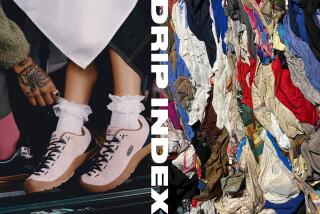- Share via
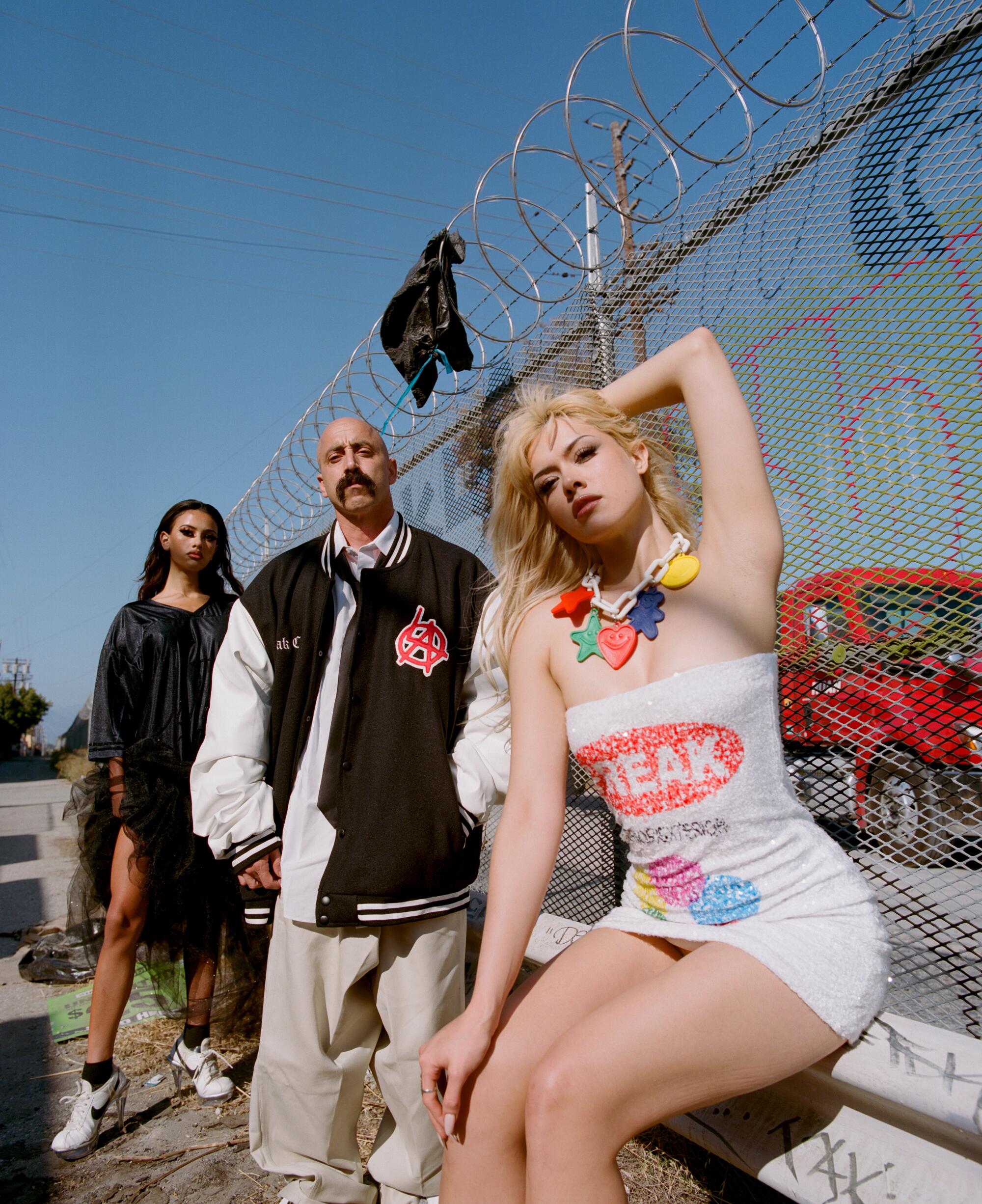
This story is part of “Discourse,” a fresh look at the dire state of the bicoastal conversation — free from corniness and cliches. Check out the whole issue — the “New York” issue, if you’re reading between the lines — here.
What if one collection told the story of what happened when two freaks met?
The years of underground parties beloved by M.I.A. and Diplo, the police raids, the struggles, the highs, the inside jokes, the bad apartments. What if all these experiences and memories were sowed into the clothes and presented back to the city that fostered them?
For Freak City, the brand by L.A. natives Justin Romero and Valerie “Vally” Campbell, that’s exactly what its latest offering is: The company’s story, from the beginning to now.
The collection, which will debut at Freak City’s first L.A. fashion show at the Stomping Ground L.A. on July 14, is a body of references that calls back to the ideas that shaped the brand into what is is: a celebration of irreverence, outcasts, underground culture, music, graffiti and L.A.
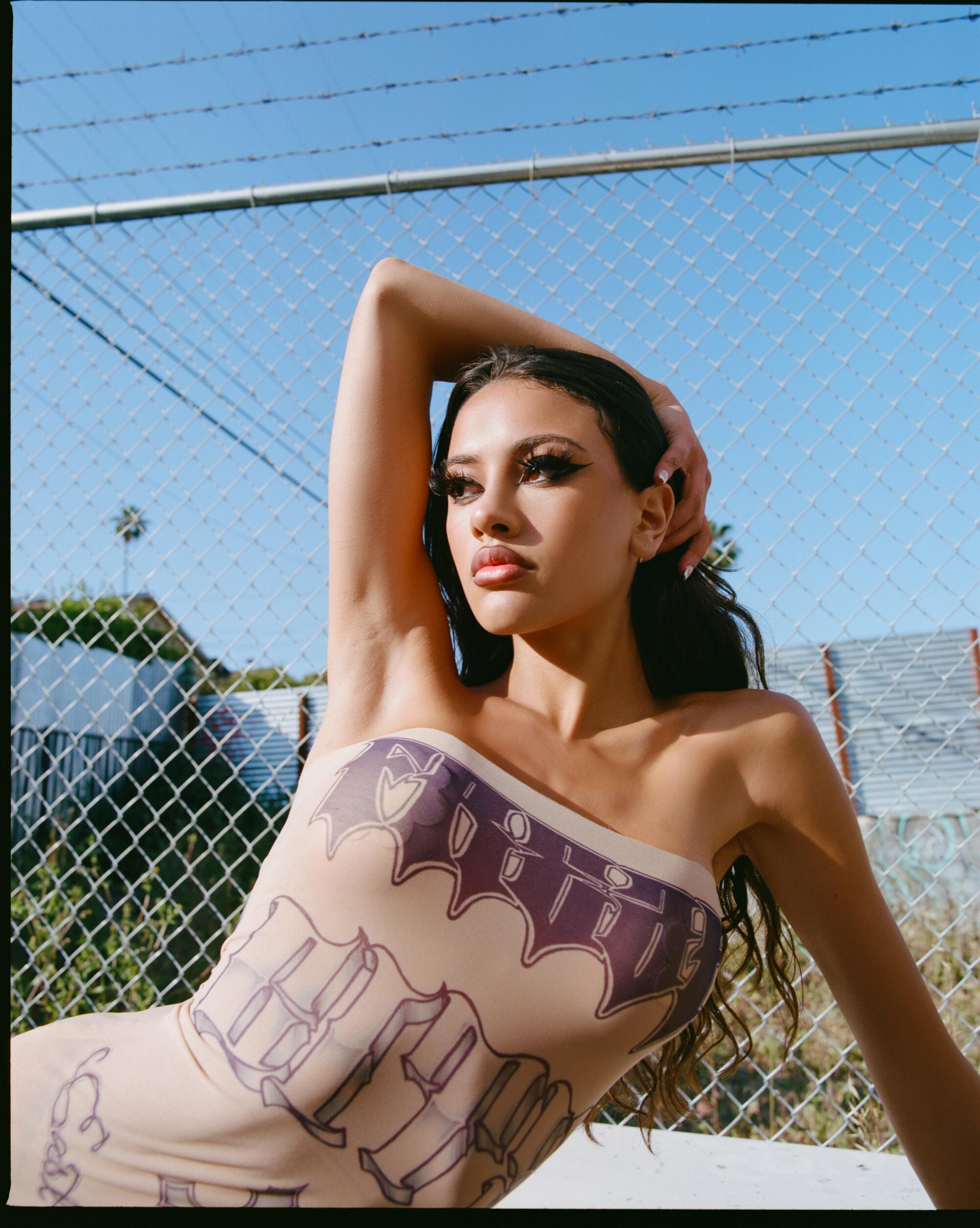
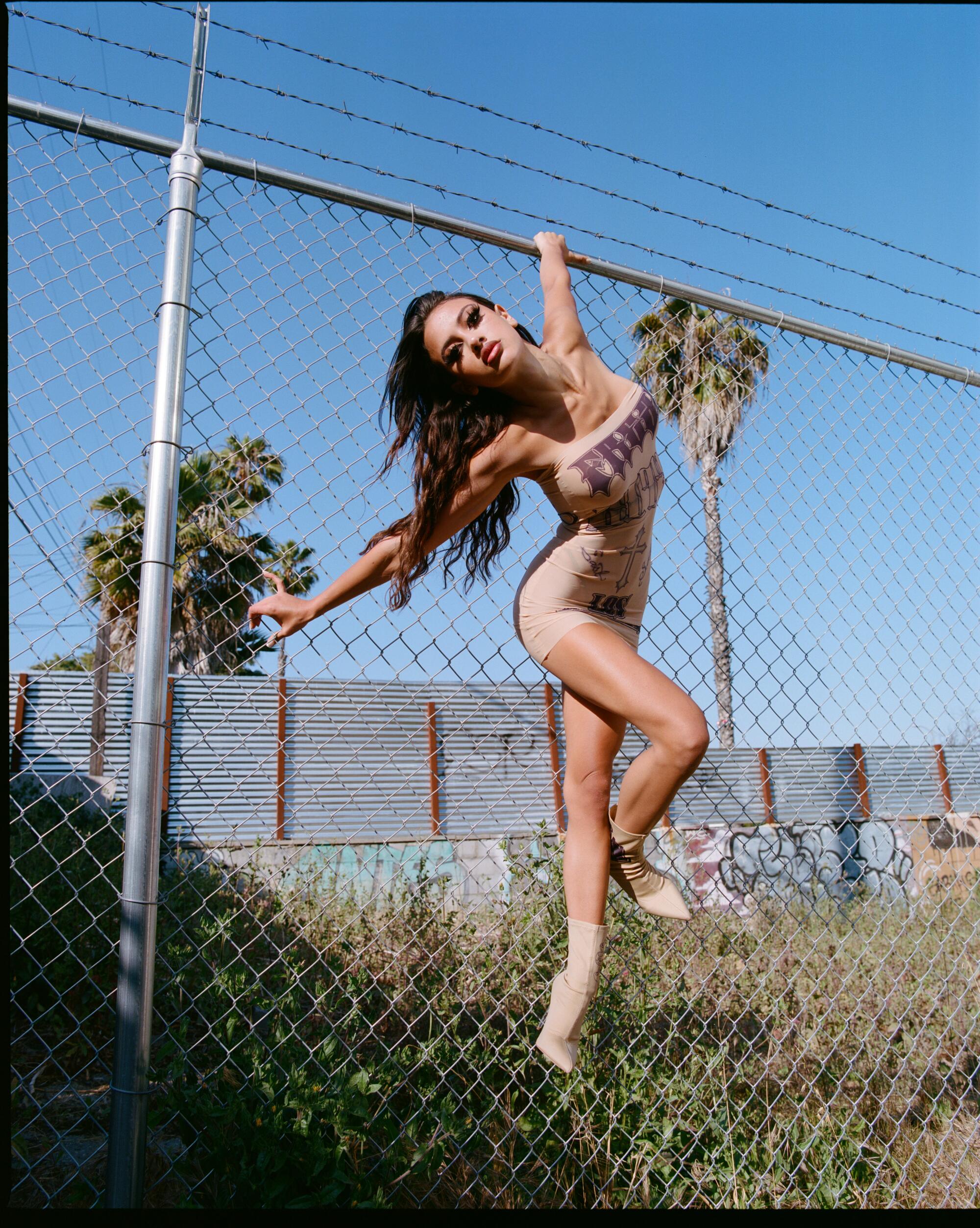
Campbell and Romero met when they were both 19, at a shoe store in Old Pasadena, where Romero was working at the time. Romero remembers seeing Campbell and feeling an inexplicable pull toward her. They were both wearing handmade shirts, with matching hearts sewn onto them. “It was like meeting a different version of yourself,” Romero says. “From a different part of L.A., different reality, different dimension. But the energy was equal in a balanced, strange way. And I’ve never met a girl like that.”
Romero is from the East Side, raised in a Mexican American family; he spent much of his youth in underground hip-hop and rave scenes as a break dancer, graffiti writer and rapper. And Campbell, who grew up in different parts of the Valley (hence her nickname, bestowed by Romero) was an art kid in a mixed Native American and Japanese household, who started making jewelry when she was 6. At the time they met, Campbell was studying art at Occidental College. “The story is school girl meets street boy,” says Romero.
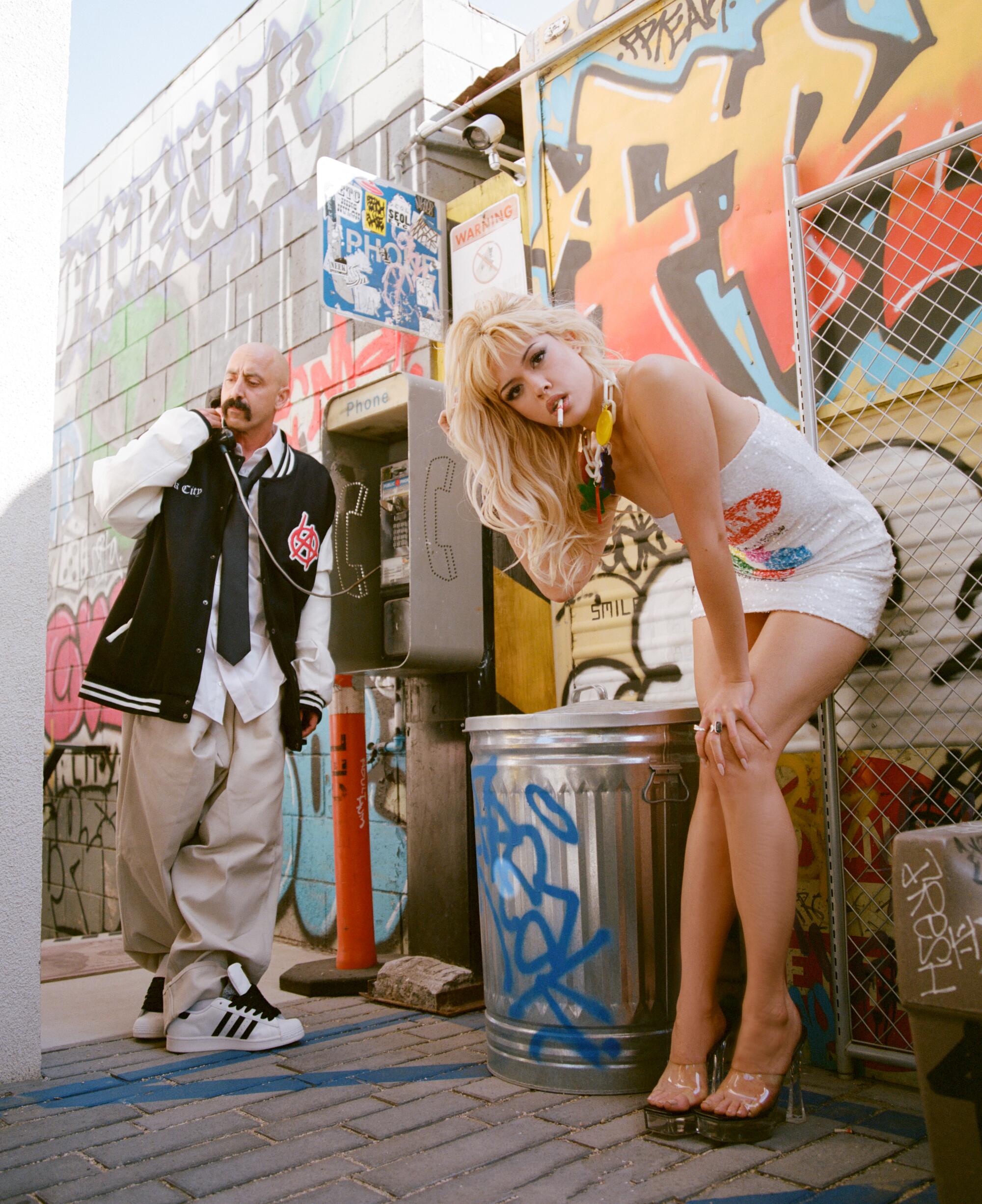
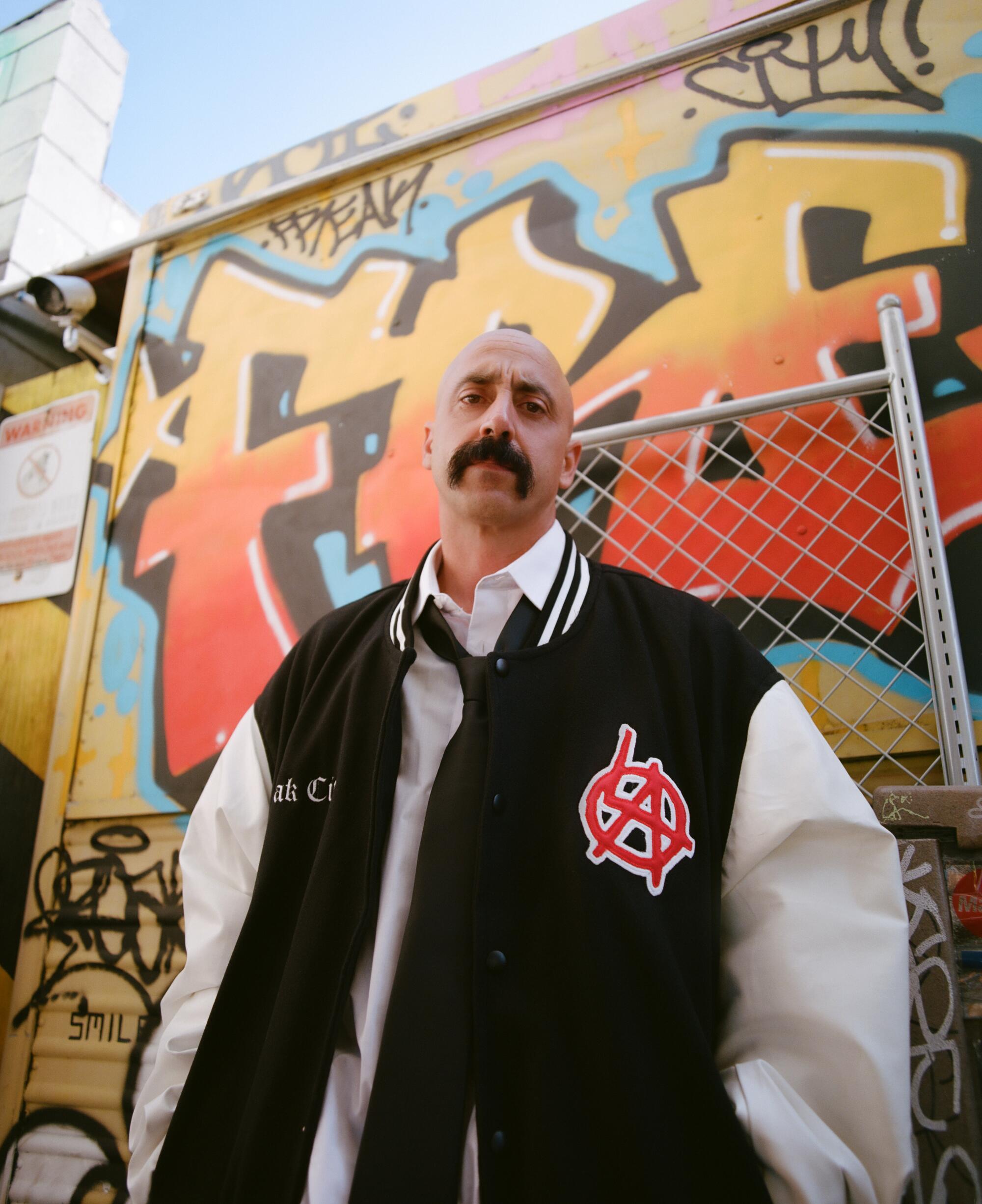
They began making music together — somewhere between electro rap and experimental hip-hop — and eventually moved in. There weren’t many places for them to perform their music, sell their clothes or flex their sensibilities, so they started throwing parties for themselves and their friends. The parties became incubators for fashion and talent — going by names such as Hollyhood and L.A. Goes Boom. Their first location was called the Lipstick Gallery, which eventually became Freak City. The party and community moved together through different iterations and venues in Hollywood — from that first spot on Melrose Avenue and Berendo Street to Sunset Boulevard to Hollywood Boulevard. Freak City was a space for everyone, and everyone came through. It was where, as two remember, Pharrell shot videos, where Odd Future threw New Years parties, where Kali Uchis kicked it before she was famous and where Alexa Demie peddled blinged-out sunglasses.
Fashion was always part of the story.
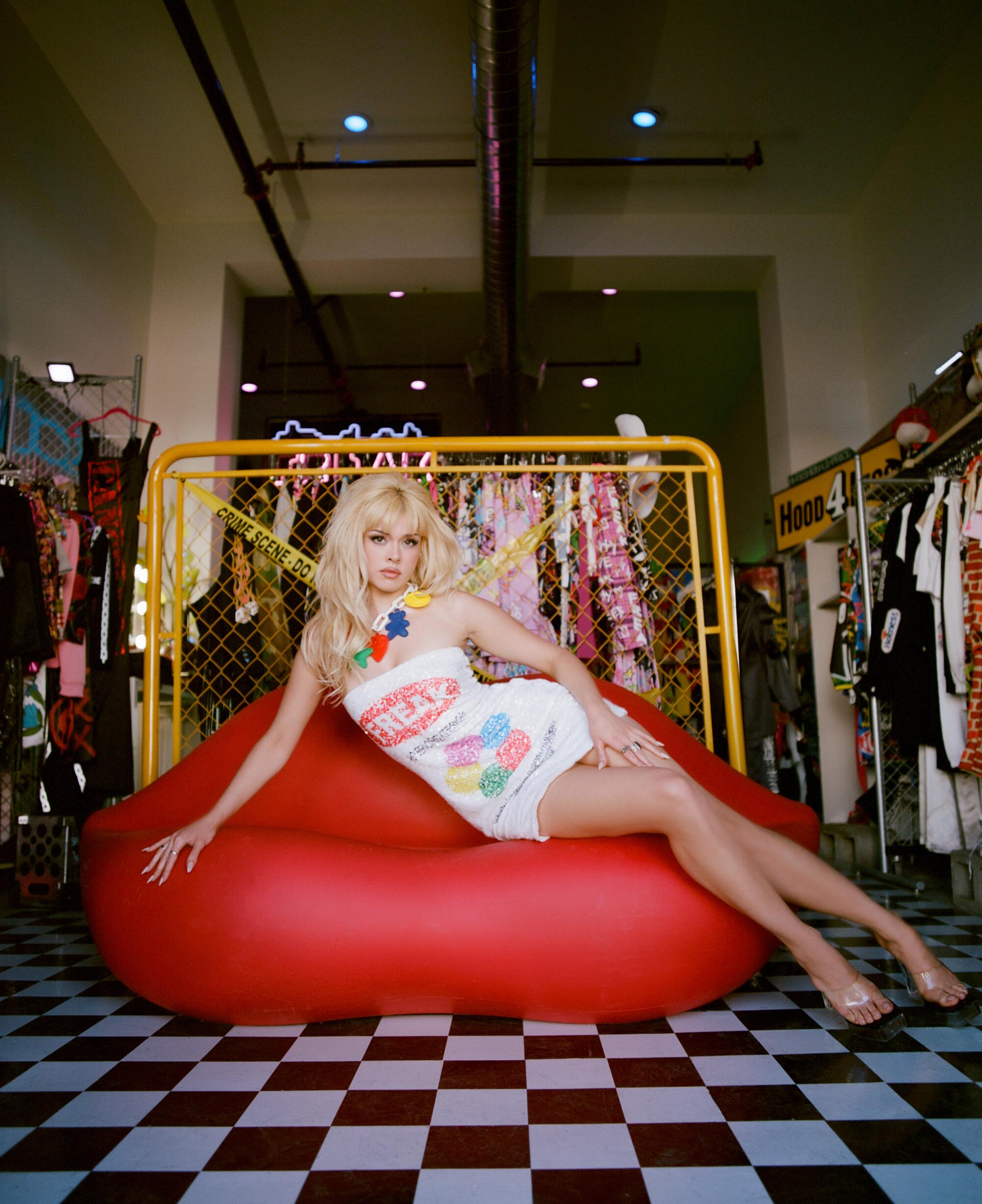
From the jump, Romero and Campbell collected vintage, made apparel, sold merch and jewelry. They had a shop inside their parties nicknamed the Jewel Box, where people would congregate. They created clothes with the party in mind — what would stand out in the dark, what would capture the kind of maximalist indie club kid energy of the scene they etched out in the city. By the late 2010s, the gatherings had taken a backseat to the designs, but the party lived on through the clothing. For a while, they became known for their high-fashion knock-offs — think Louis Vuitton monogram bikinis — that in a zoomed out way were a rebellion against luxury capitalism.
Walk into Freak City’s showroom today, and it feels like taking a walk through the pair’s shared psyche, or the sickest party you could ever go to in 2011. There are neon signs, obscure references taped to the wall, layers and layers of fabric in every loud or bright shade of color and print imaginable.
You might describe a Freak City piece as cheeky. Printed or embroidered words are centerpieces of the brand’s aesthetic. Both Campbell and Romero are poets. “A lot of it discusses subliminal messaging — the battle between light and dark,” Campbell says. “It’s really a tug of war between choices that we make, what we’re fed from the media, what we see every day on television, what we hear in music. We’re subconsciously being fed all of these things that may or may not be good for you, so we’re just reflecting it back, putting up a mirror and letting you interpret it.”
Adds Romero: “It’s multidimensional.”
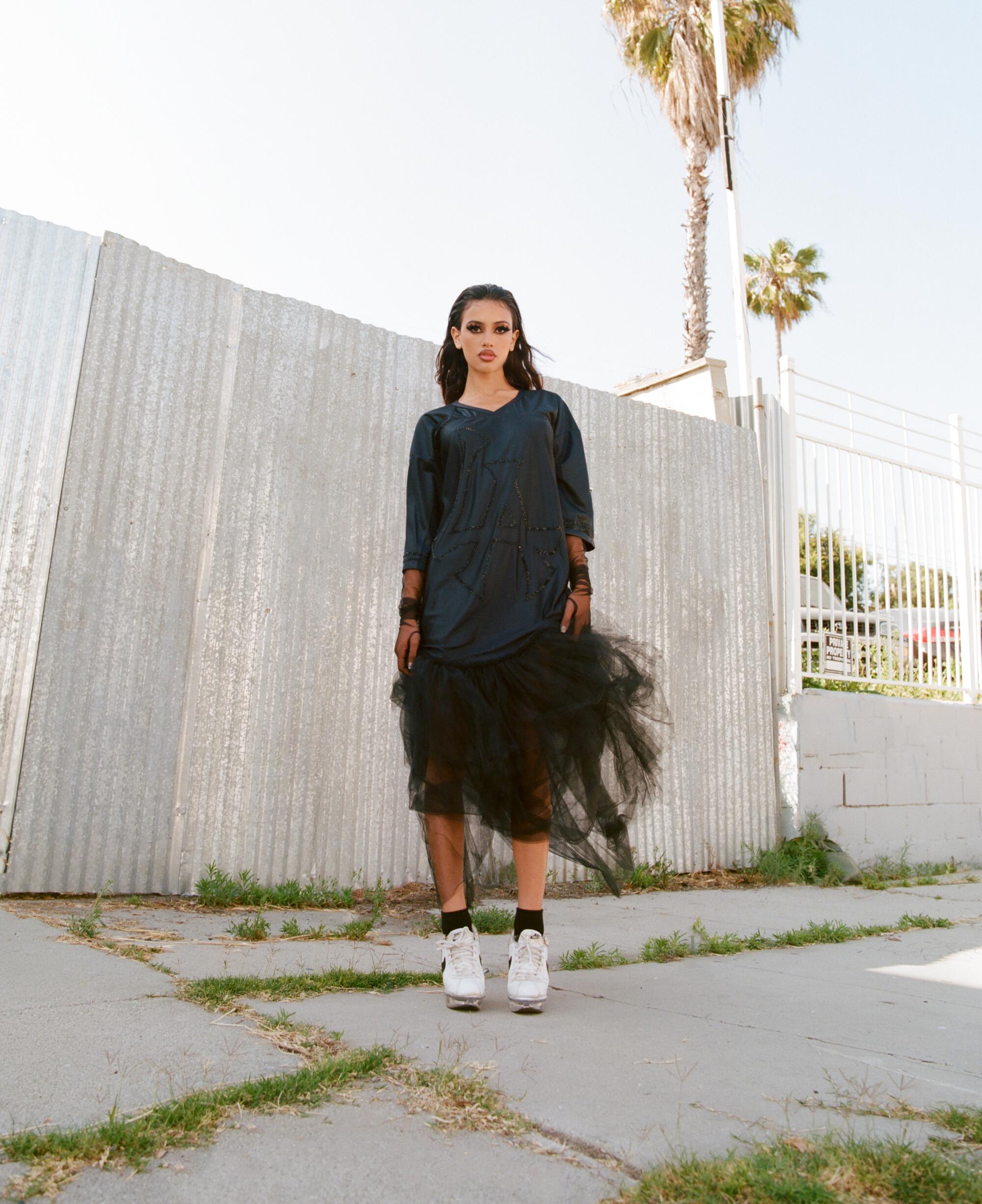
The brand has done a pop-up in Japan, an installation at the Museum of Contemporary Art, a fashion show in Mexico City and another at Yaamava’ Fashion Daze at the Yaamava’ Resort & Casino at San Manuel in Highland, Calif., but July 14 will be Freak City’s first time showing in L.A.
It’s a full circle moment for two people who are from here, met here and built their legacies here. The show will feature artists, musicians and creatives close to the Freak City family, like N8noface, Avalon Lurks, Princess Gollum, Maxine Ashley, Rico Nasty and Dorian Electra.
Freak City pieces, especially the ones being shown at Stomping Ground, are imbued with messages of wisdom, love, light and strength, questioning, freedom; a knee-length hoodie becomes a totem, representative of the brand as a place for all genders, race and genres, says its founders. The takeaway from each piece depends on who is looking at it, but the point is that it sparks conversation.
The brand offers an alternative to the classic L.A. uniform — not the clean white tee and a pair of Nike Cortez, but rather something for the weirdos: “Depression” and “Anxiety” crewnecks, clown balaclavas, a Tajín jersey ball gown, a sequined mini dress modeled after a Krylon spray can, a BBL printed skirt that’s “cheaper than surgery and you won’t die,” an artificial intelligence fit, and “Pro Slut” patches modeled after the iconic Pro Club logo.
“Some of the stuff is a joke,” says Romero. “We’re making fun of ourselves or reality. And some s— could be really deep, and it’s something we really believe in and it’s meaningful and powerful. From surface level, we’re making fun of everything, but this is actually from our culture, from our spirit. From the superficial to the super spiritual and everything in between.”
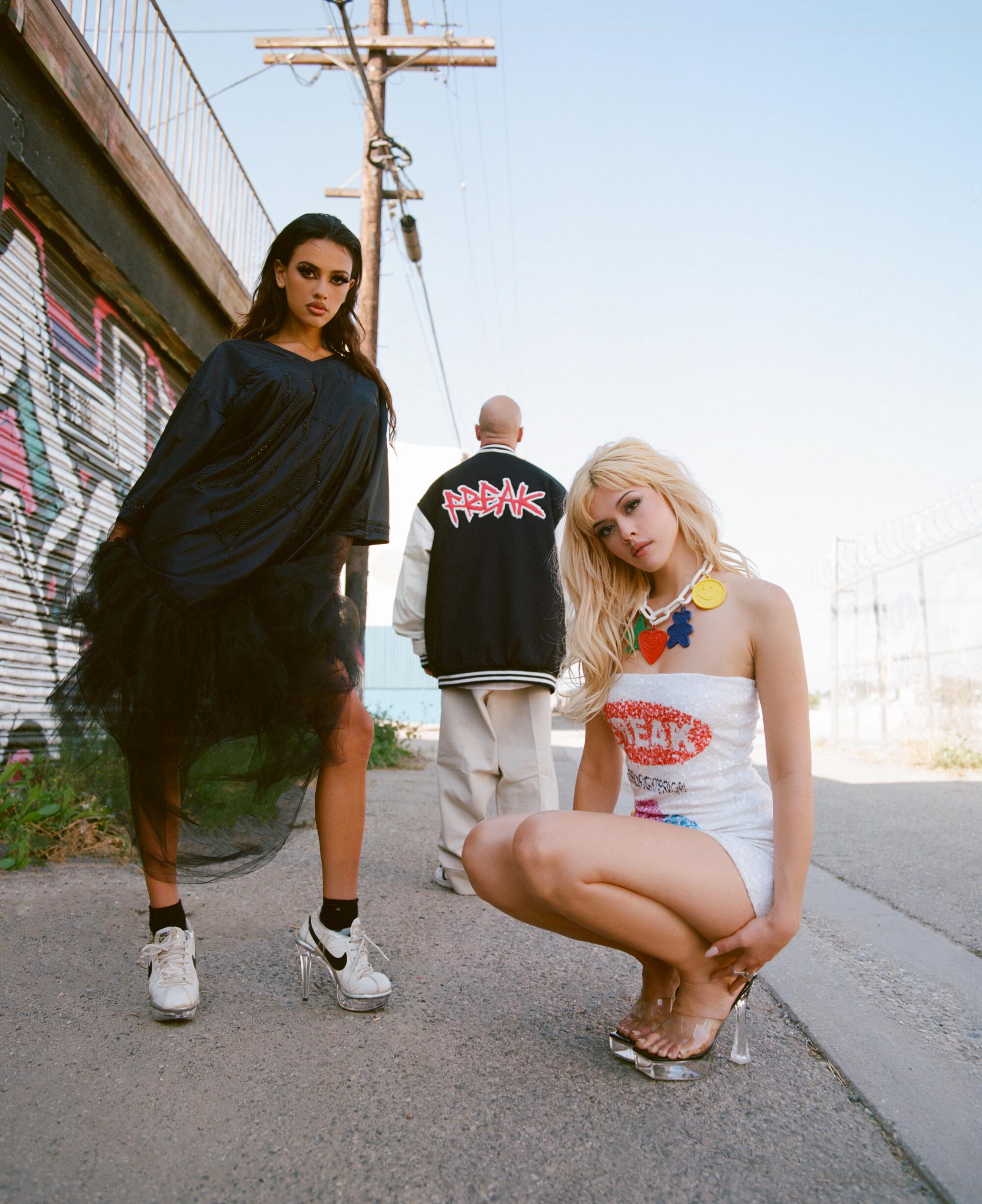
Models: Avalon C. Lopez, Nathan Hose, Leona Wong
Styling: Freak City
Makeup: Selena Ruiz
Hair: Jocelyn Vega


